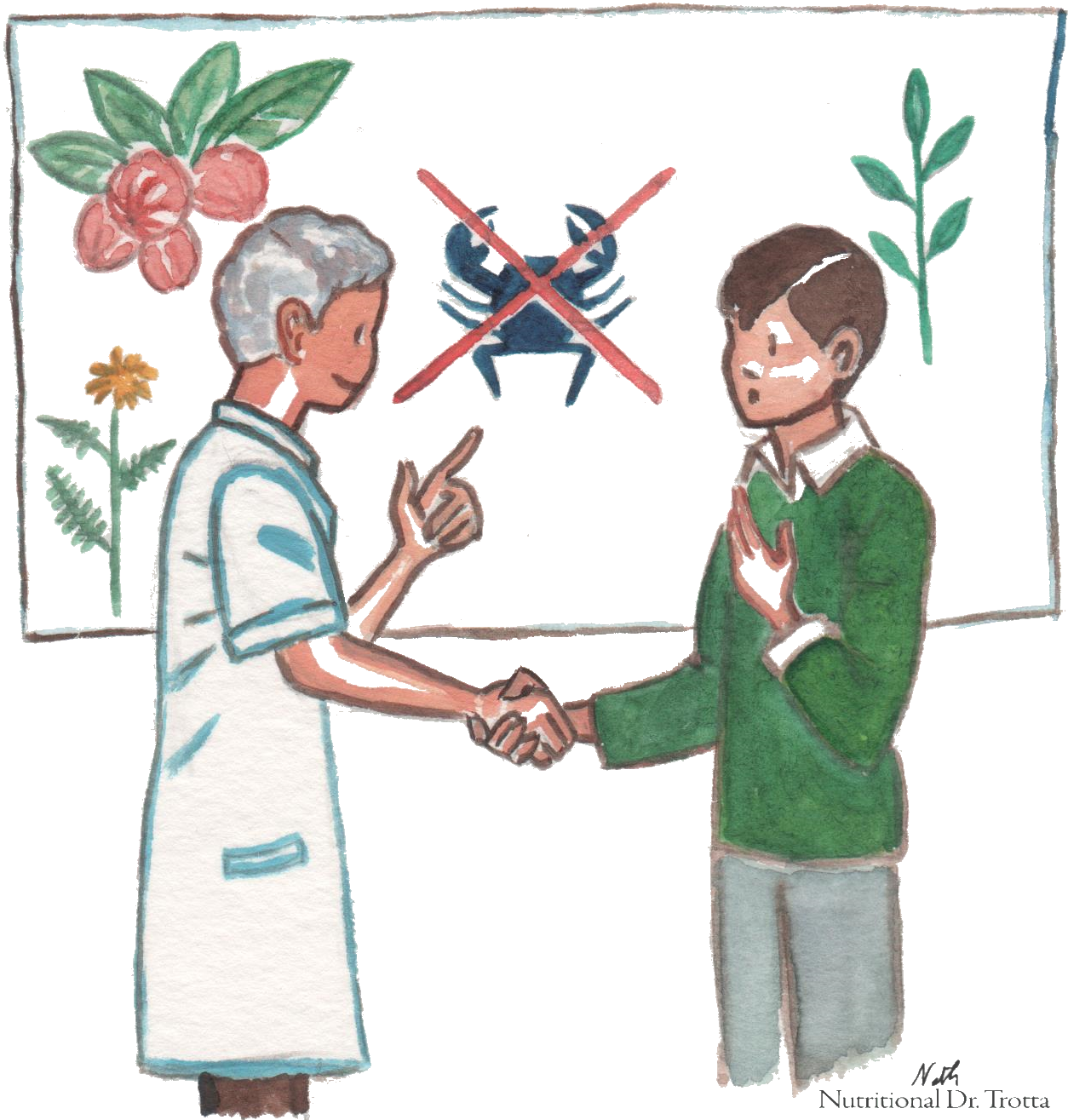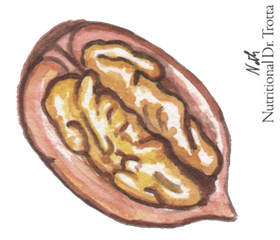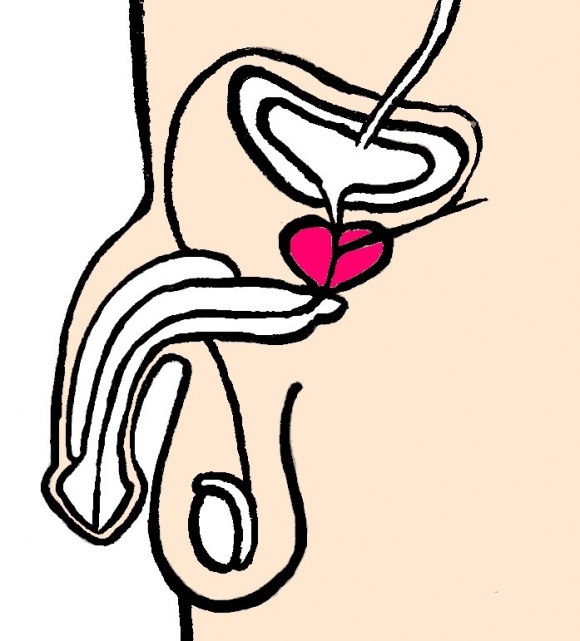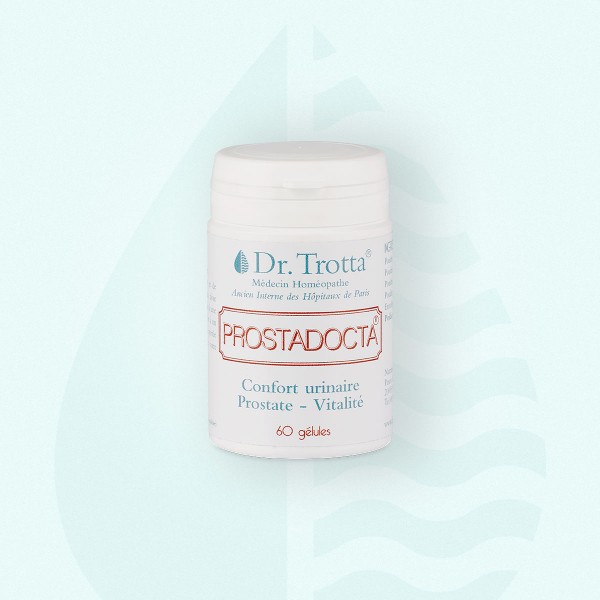 When I was a radiologist, I was quite impressed by a patient association that called itself “touches pas à ma prostate” (don’t touch my prostate).
When I was a radiologist, I was quite impressed by a patient association that called itself “touches pas à ma prostate” (don’t touch my prostate).
It must be said that I practiced not far from Toulouse, where a famous surgeon had falsified ana-pathology results (the results of prostate biopsies) to operate on patients with prostate cancer they didn’t have!
And in the press article reporting on this association, many patients said they regretted having had the operation because they had lost their virility or become incontinent.
During my 20 years as a radiologist, I’ve performed a great many urinary and prostate ultrasound scans.
I’m therefore fairly familiar with the diagnosis of prostate-related disorders.
I’ve diagnosed various diseases of this gland: acute prostatitis, prostate adenoma or prostate cancer, which is fortunately much rarer.
I’m also well aware of the complications associated with prostate surgery: they’re increasingly rare, and we’re now dealing with a generation of urologists who no longer rush their patients’ prostates as they did 30 or 20 years ago.
That’s because patients are much better educated and now ask for information before undergoing surgery.
So my message to you is to be very careful if you are offered prostate surgery.
I’d like to remind you of the real indications, the real reasons, for prostate surgery:
-a bladder that won’t empty (due to prostate obstruction), resulting in a residue with either stones or recurrent urinary tract infections.
-!Proven prostate cancer: i.e. not just a small increase in PSA levels, but PSA levels above 10 and rising at 3 successive check-ups, with a real tumour diagnosed on MRI.
I’m going to focus here on the most frequently encountered problems, which pose the greatest diagnostic challenges for both doctor and patient: a PSA level between 4 and 10.
PSA is an antigen secreted by prostate cells that increases with prostate volume.
If at age 20 you have a prostate of 20 ml, your PSA will be less than 2.
If at age 60 you have a prostate of 60 ml, your PSA must be < 6.
The PSA level is proportional to the volume of the prostate. (You divide the volume of your prostate in ml by 10 to obtain the admissible upper PSA level.
If your PSA level is between 4 and 10 and you’re told you need to have a biopsy, don’t.
Have a good ultrasound of your prostate first, to see exactly how big your prostate is. Find out if the X1 residue is mictional, i.e. the radiologist has to measure your bladder before and after you urinate, to check that your bladder is emptying properly. If not, it’s a sign that your prostate is obstructing the evacuation of your bladder.
 And if your PSA level is less than 1/10th of the volume of your prostate, you have an adenoma and no cancer. So there’s no need for a biopsy.
And if your PSA level is less than 1/10th of the volume of your prostate, you have an adenoma and no cancer. So there’s no need for a biopsy.
For example, you have a PSA level of 6, which is higher than the standard accepted by all laboratories, but this is an arbitrary standard that doesn’t take into account the volume of your prostate, as I’ve just explained.
So if your PSA is 6, have an ultrasound done.
In both cases, your prostate is larger than 60 ml. Your PSA is therefore normal for the volume of your prostate. On the other hand, if your prostate is smaller (<60 ml), you should have your PSA level checked in three months’ time, and then a third time in three months’ time. This will give us a six-month evolution curve of your PSA level.
If it rises gradually, you have cancer cells growing. It’s decided to do an ultrasound-guided biopsy of your prostate to look for a nodule or cancer.
If it rises and then falls, you don’t have progressive cancer. No need for Biosun for the time being. You can wait
You should also be aware of the need to measure your PSA level at a distance (one month later), as digital rectal examination, trans-rectal ultrasound of the prostate and biopsies artificially increase PSA levels.
Another vital piece of information you need to know to protect your prostate:
Many men over 50 have cancer cells in their prostate.
Clearly, the older you get, the greater your “chance” of having cancer cells in your prostate: 50% at 50, 80% at 80.
But having cancerous cells doesn’t mean you have cancer – that’s the difference. Cancer is when cancer cells proliferate and multiply uncontrollably. Cancer cells, on the other hand, are the lot of just about everyone from the age of 50 onwards, and our immune system eliminates them as and when they appear (this is the role of our immune system, our guardian of the temple, as it were).
It has been shown that if you take prostate biopsies from men who have died for reasons other than the prostate, such as a car accident, stroke or heart attack, you will find this percentage of cancer cells in the prostate as a function of age.
So the appearance of cancer cells in the prostate is a natural process of prostate aging. And not all these cancer cells turn into cancer.
Only a small proportion of men with these cancer cells will develop prostate cancer, which is the uncontrollable multiplication of these cells that will cross the prostate capsule, enter the bloodstream and metastasize to the bones.
What are the reasons why some men develop prostate cancer and others don’t? That’s a very good question, and a difficult one to answer.
However, in 2016, we can say that the factors that lead to the development of cancer in general, and prostate cancer in particular, are multi-factorial, i.e. due to multiple factors. The most clearly demonstrated are:
-Genetic factors: if you have a family history of cancer, you are more likely to develop it. Genetic factors account for only 10-20% of all cancers.
 –Environmental factors are much more important, accounting for around 80% of cancer risk factors. In fact, it’s our lifestyle and the various external factors that surround us: junk food, overweight, excess dairy products containing cancer-causing pesticides, over-vaccination leading to over-oxidation, all kinds of chronic and acute stress, and in particular betrayal.
–Environmental factors are much more important, accounting for around 80% of cancer risk factors. In fact, it’s our lifestyle and the various external factors that surround us: junk food, overweight, excess dairy products containing cancer-causing pesticides, over-vaccination leading to over-oxidation, all kinds of chronic and acute stress, and in particular betrayal.
Very few people and very few doctors are aware of this. There’s an irrational fear of prostate cancer. Because of this, too many prostates are biopsied too quickly.
A prostate biopsy is by no means harmless. As the renowned cancerologist Professor Lucien Israël has said, this aggressive gesture triggers a natural defense reflex in cancer cells, which then send out signals to all other cancer cells, telling them to “beware, danger, aggression, multiply!
There must be very good reasons for a prostate biopsy:
Significant increase in PSA levels > 10 and well above the volume of the prostate Continuous increase in PSA levels on three blood tests taken three months apart, from 6 to 12 and then to 24
Presence of a tumour confirmed on ultrasound (with Doppler analysis) and MRI.
Presence of bone metastases
If your PSA level is between 4 and 10, just wait!
In borderline cases where your PSA level is > at 4 and < at 10, it is perfectly legal to modify your terrain, your environment, to eliminate your cancer cells and thus avoid the development of cancer. It’s possible and it works.
And checking your PSA level after 3 months will confirm whether it’s working or not.
Follow my advice:
1/ Change your diet to one that will kill small cancer cells naturally.
Reduce the foods that promote cancer: excess red meat (more than 3 times a week), cow’s milk products (every day), fried foods, sugar.
Sugar is the favorite food of cancer cells. To starve cancer cells, you need to cut out white sugar, brown sugar, confectionery, etc.
 2/ Switch as far as possible to the following anti-cancer diet:
2/ Switch as far as possible to the following anti-cancer diet:
Regularly consume cabbage, all types of cabbage, sardines, fresh or canned mackerel, nuts (3-5 per day), seasonal fruit and vegetables as ecologically friendly as possible and with as few pesticides as possible, spices including turmeric, aromatic herbs, garlic, onions regularly, lemon, green tea, dark chocolate and red wine in small quantities and as ecologically friendly as possible.
For the prostate, increase lycopene-rich foods such as tomatoes, tomato juice and all red, orange and yellow fruits and vegetables.
3/ If you can, try fasting for 10 to 20 days to starve your cancer cells.
Cancer cells have a major handicap compared to normal cells: they only know how to use glucose as fuel to survive. Normal cells, on the other hand, know how to use both glucose (when you eat) and the ketone bodies produced by the young person when food is interrupted.
Fasting is, in my opinion, the first thing to do if you have been diagnosed with cancer or pre-cancer.
If you don’t feel up to fasting, which is understandable and requires medical supervision, I recommend micro-fasting, which consists of not eating for a few days in a row: it’s better than nothing.
4/ Take PROSTADOCTA for 3- 6 months
In PROSTADOCTA, you’ll find the famous red fruit of the saw palmetto, Sabal, which contains phytonutrients that reduce the risk of prostate cancer.
PROSTADOCTA will also reduce your prostate congestion and improve your symptoms: with this supplement I’ve developed, you’ll get up less at night to urinate, and your urinary stream will gradually become stronger. PROSTADOCTA also increases sexual vigour, at an age when it can tend to decline, without increasing the risk of prostate cancer – on the contrary.
Nos produits naturels
Need more information and to meet Dr. Pascal Trotta?
Make an appointmentAlso read

Prostate adenoma

Recurrent urinary tract infections: the natural solution

